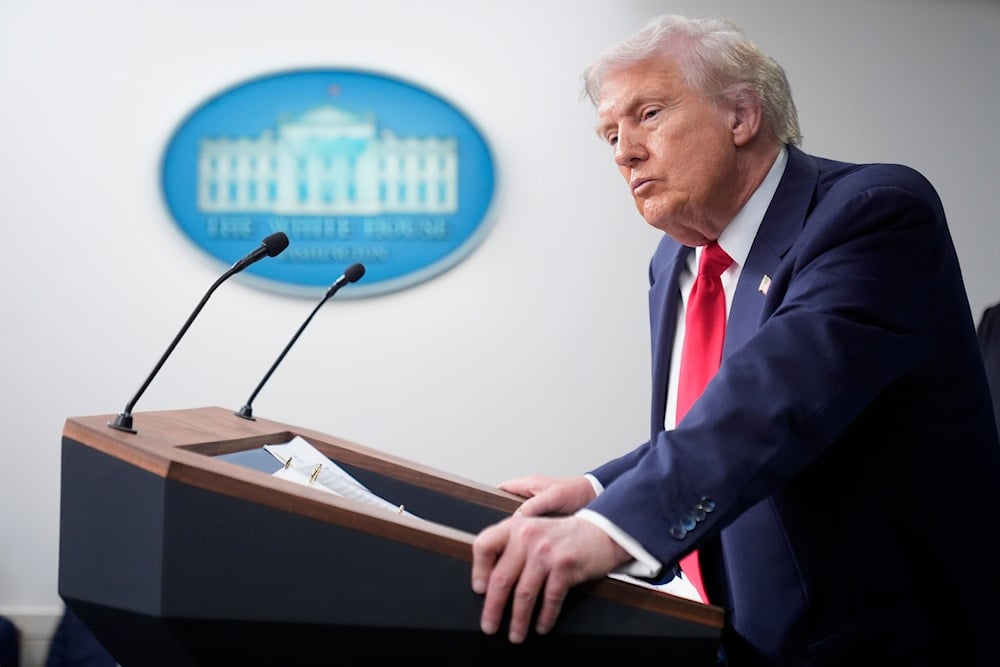Trump announces another 90-day pause on China tariffs
Trump issues an order extending higher tariffs just hours before the deal was set to expire.
-

President Donald Trump listens to a question from a reporter in the James Brady Press Briefing Room at the White House, Monday, Aug. 11, 2025, in Washington. (AP)
Donald Trump has once again postponed the implementation of broad tariffs on China, announcing a fresh 90-day delay just hours before the current trade agreement between the two economic giants was set to expire.
On Monday, the US president signed an executive order extending the deadline for increased tariffs until November 9, officials confirmed to Reuters.
Earlier that day, Chinese officials had expressed hope that Washington would pursue a “positive” outcome as the temporary trade truce, originally agreed to in May, approached its expiration.
“We hope that the US will work with China to follow the important consensus reached during the phone call between the two heads of state," said foreign ministry spokesperson Lin Jian, "on the basis of equality, respect, and mutual benefit."
Chinese and US officials had signaled for weeks that a tariff extension was likely, following a recent round of trade talks held in Stockholm last month. US Treasury Secretary Scott Bessent said last week that negotiations with China showed promise, describing the current state of talks as having “the makings” of a deal and expressing optimism about the path forward.
Tariff threats loom, and export fees raise alarm
The stakes remain high. Without an agreement, a full-blown trade war could erupt between the world’s two largest economies. Trump has threatened tariffs of up to 245% on Chinese goods, while Beijing has warned it would retaliate with tariffs of up to 125% on US exports.
On Sunday, Trump took to TruthSocial to call on China to quadruple its soybean purchases from the US as a way to help reduce the ongoing trade imbalance.
At present, US exports to China face average tariffs of about 30%. Meanwhile, Chinese imports to the US are subject to a base tariff of 10%, along with an additional 20% imposed in response to allegations that China is facilitating fentanyl smuggling. Certain products face even steeper rates.
Economists and the Federal Reserve have raised concerns that these tariffs could fuel inflation. According to Goldman Sachs, U.S. consumers have already absorbed 22% of tariff-related costs as of June 2025, a figure that could climb to 67% if the latest round of tariffs follows past trends.
In a move to avoid further market disruptions, chipmakers Nvidia and AMD have reportedly agreed to pay the US government 15% of their revenue from high-end semiconductor sales to China in exchange for export licenses.
Stephen Olson, a former US trade negotiator, criticized the arrangement, telling Bloomberg, “What we are seeing is in effect the monetization of US trade policy in which US companies must pay the US government for permission to export. If that’s the case, we’ve entered into a new and dangerous world.”

 3 Min Read
3 Min Read








